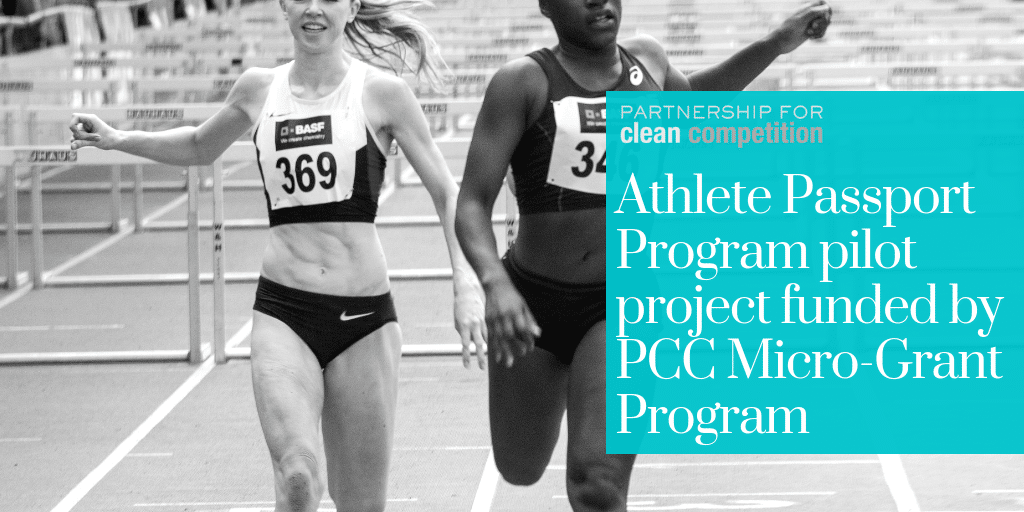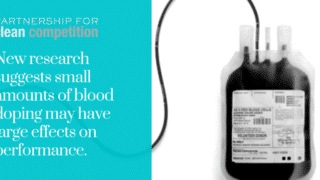Dr. James Hopker, a Reader in Exercise Physiology and Director of Postgraduate Research at the University of Kent, was recently awarded a PCC Micro-Grant to develop an Athlete Passport Program for sports anti-doping.
While Dr. Hopker’s main research interest concerns responses to exercise and training, his expertise in sports science and physiology make him an ideal candidate to explore the potential for using information technology to monitor competition results on a longitudinal basis – and both detect and deter performance enhancement in sport.
The project, applied for via a PCC Micro-Grant, was approved within weeks, giving Dr. Hopker the opportunity to immediately begin work validating his pilot study, then apply for a larger PCC grant to carry on the important research.
We invited Dr. Hopker to details his experience with the Micro-Grant program, and explain the specific aims of the Athlete Performance Passport project:
What are your initial thoughts on the micro-grant program and process?
The micro-grant provides an excellent opportunity to obtain a small amount of funding in order to generate pilot or proof of concept data that can form the basis of a future full grant application. The application process was very straightforward and the turnaround time was very quick. Moreover, the fact that applications are dealt with using a responsive mode without call deadlines means that time sensitive projects can be effectively supported. Email communication from
What is the main aim of your research?
The use of information technology within sport has significantly increased over recent years. These data and information have the potential to make a significant impact on sporting performance, and the nature of its related sciences too. The purpose of this study is investigate the potential use of monitoring of an individual’s competition results on a longitudinal basis for anti-doping purposes.
As the primary reason for use of doping is improvement of performance, it is reasonable to suggest that athlete competition results may reveal suspicious performance improvements, indicative of doping. The main objective of longitudinal monitoring of athlete performance in this way is to distinguish between expected, and somehow disproportionate, improvements in sporting performances. In this regard, the identification of unexpected increases in athlete performance could be used as a trigger for their closer scrutiny via a targeted anti-doping testing program, leading to more targeted and cost-effective allocation of anti-doping resources.
What challenges might you encounter?
A key problem for the use of performance data in this context is to be able to differentiate between a physiological increase in performance caused by factors including training, maturation, seasonal variation and random variation, from an “unphysiological” improvement caused by doping. Moreover, there are currently no international benchmarks and very little scientific research on physiological improvement in performance and its variation in a longitudinal setting which could be used for this purpose.
How will you overcome these barriers?
The aim of this 6-month pilot study is to develop statistical methods to interrogate athlete competitive results in order to be able to identify performance profiles of athletes convicted of “doped” from those presumed clean. This work will facilitate the development of benchmarks for the evolution of athlete performance trajectories over the course of their careers for both “doped” and “clean” athletes. This analysis will also facilitate further identification of “suspicious” athletes who were never convicted of doping offences, but display similar performance profiles to sanctioned athletes. It is anticipated that this preliminary work will enable the development of a statistical method to analyze athlete performance data, which will then be tested and evaluated within a full PCC grant.
We look forward to updating you on Dr. Hopker’s progress!




